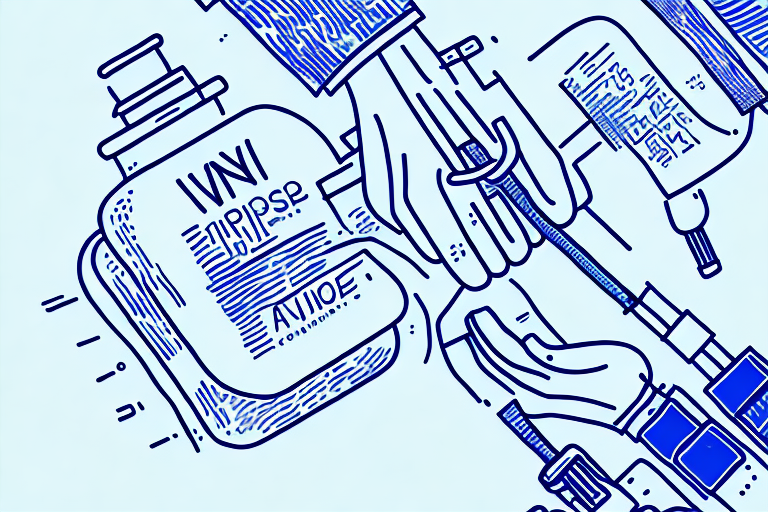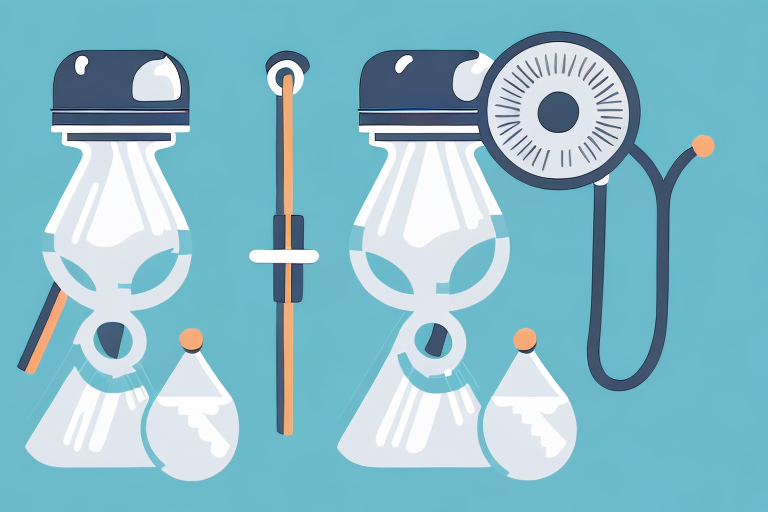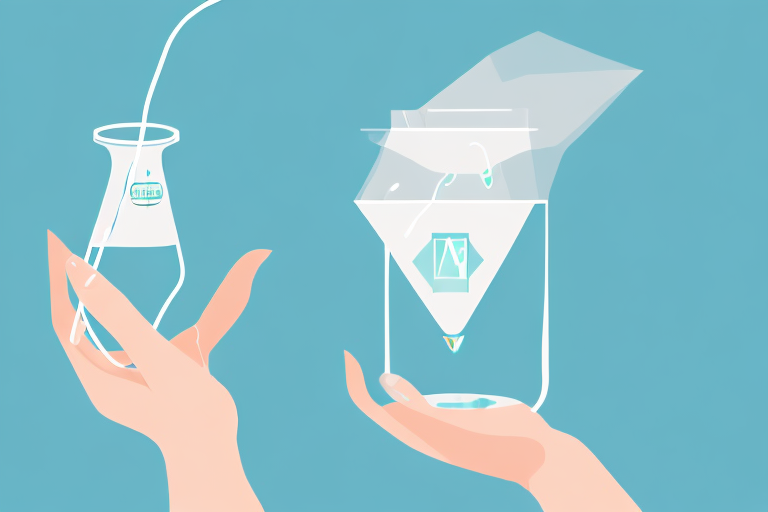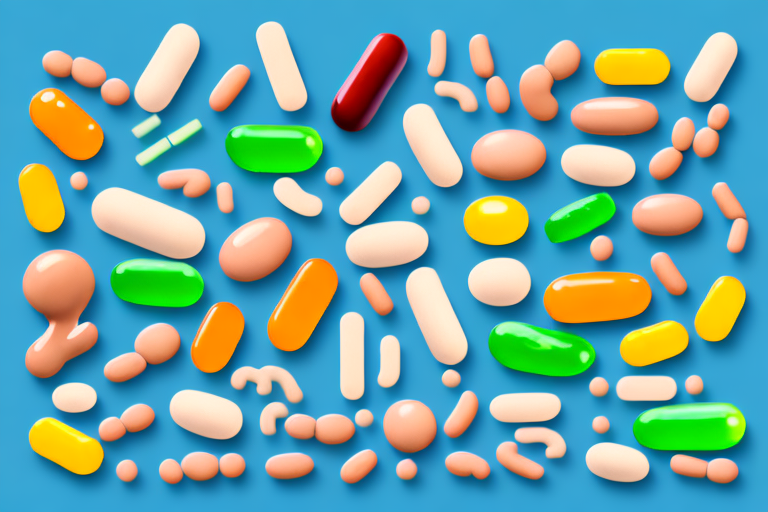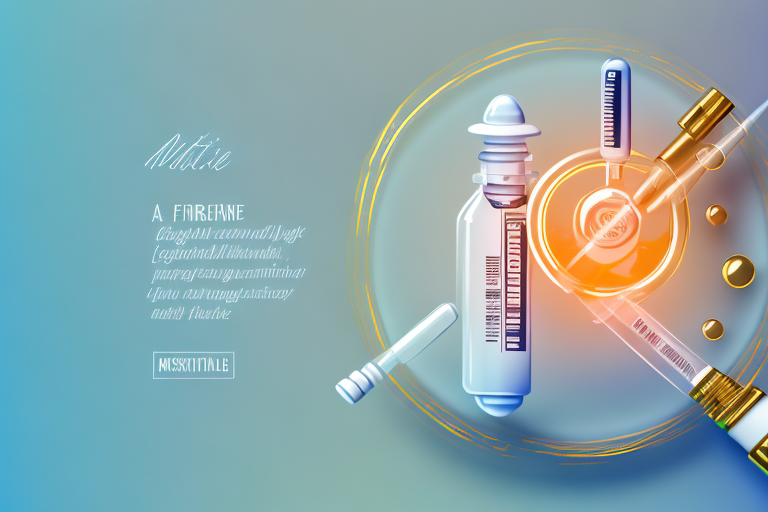Discover the Amazing Benefits of Glutathione
Glutathione is a vital antioxidant and nutrient that plays a crucial role in maintaining optimal health. Our bodies naturally produce this compound, but certain lifestyle factors and environmental toxins can deplete its levels, leading to a range of health problems. In this article, we will delve into the amazing benefits of glutathione, how it works, and how you can increase its levels naturally.

What is Glutathione and Why is it Important?
Glutathione is a tripeptide composed of three amino acids, namely cysteine, glycine, and glutamic acid. It has a powerful antioxidant effect that helps neutralize free radicals, which are unstable molecules that damage cells and tissues. Glutathione also has the ability to recycle other antioxidants like vitamin C and E, making them more effective.
Aside from its antioxidant activity, glutathione is involved in many other essential functions of the body, including immune system regulation, DNA synthesis, and detoxification. Additionally, studies have shown that low levels of glutathione are associated with various chronic diseases, including cancer, diabetes, and neurodegenerative disorders.
The Role of Glutathione in the Body
Glutathione performs several critical functions in the body, including:
- Detoxifying harmful compounds and pollutants, including heavy metals and chemicals
- Regulating the immune system and reducing inflammation
- Maintaining the structure and integrity of cells and tissues
- Protecting against oxidative stress and damage caused by free radicals
It is interesting to note that glutathione is particularly important for the liver, which is the body's primary detoxification organ. The liver uses glutathione to neutralize toxins and remove them from the body. Without adequate levels of glutathione, the liver can become overwhelmed and damaged, leading to a range of health problems.
Glutathione also plays a critical role in the immune system. It helps to regulate the activity of immune cells, including T cells and B cells, which are responsible for fighting infections and diseases. Low levels of glutathione can impair immune function, making the body more susceptible to infections and other health problems.
How Glutathione is Produced
Our bodies naturally produce glutathione from the three amino acids that make it up. However, certain factors can decrease its production, including exposure to toxins, stress, poor nutrition, and aging. Therefore, it is important to maintain a healthy lifestyle to ensure adequate glutathione production.
Additionally, certain genetic variations can impair the body's ability to produce glutathione, leading to a higher risk of chronic diseases. In such cases, supplementation with glutathione or its precursors may be necessary. It is important to consult with a healthcare professional before starting any supplementation regimen.
In conclusion, glutathione is a powerful antioxidant and essential molecule that plays a critical role in many functions of the body, including detoxification, immune regulation, and cellular health. Maintaining adequate levels of glutathione through a healthy lifestyle and supplementation when necessary can help support overall health and well-being.
Top Health Benefits of Glutathione
Glutathione, also known as the "master antioxidant," has numerous benefits for overall health and wellbeing. It is a naturally occurring substance that is produced by the liver and found in every cell of the body. Here are some of the top benefits:
Boosts the Immune System
Glutathione plays a crucial role in immune system function. It helps regulate the activity of immune cells, reduce inflammation, and protect against infection. Studies have shown that low glutathione levels are associated with decreased immune function and increased susceptibility to infections. In fact, some research suggests that glutathione may be effective in reducing the severity and duration of respiratory infections, such as the common cold and flu.
Reduces Oxidative Stress
Oxidative stress is a state of imbalance between free radicals and antioxidant defenses in the body. It is a key driver of aging and many chronic diseases. Glutathione's antioxidant activity helps reduce oxidative stress and protect against cellular damage caused by free radicals. This, in turn, can help prevent or slow down the development of chronic diseases such as cancer, heart disease, and Alzheimer's disease.
Improves Liver Function
Glutathione is essential for liver function and plays a crucial role in detoxification. It helps eliminate toxins and harmful compounds from the body, reducing the risk of liver damage and disease. In addition, glutathione has been shown to improve liver function in people with liver disease, such as hepatitis and cirrhosis.
Supports Detoxification Process
Glutathione is a potent antioxidant that helps remove harmful toxins and pollutants from the body. It plays a crucial role in the liver's detoxification process by binding to toxic compounds and assisting in their elimination through urine or feces. This can help reduce the risk of chronic diseases, such as cancer and cardiovascular disease, which are often linked to exposure to environmental toxins.
Enhances Skin Health and Appearance
Glutathione has been shown to improve skin health and appearance due to its antioxidant and anti-inflammatory effects. It helps reduce the appearance of fine lines, wrinkles, and age spots, giving the skin a more youthful and radiant appearance. In addition, glutathione may also help protect the skin from UV damage and reduce the risk of skin cancer.
Overall, glutathione is a powerful antioxidant with numerous health benefits. While the body naturally produces glutathione, certain factors such as aging, stress, and poor diet can reduce its levels. Therefore, it may be beneficial to supplement with glutathione or consume foods that are rich in its precursors, such as sulfur-containing amino acids found in garlic, onions, and cruciferous vegetables.
Glutathione and Chronic Diseases
Glutathione is a tripeptide composed of cysteine, glutamic acid, and glycine. It is a powerful antioxidant that helps protect cells from damage caused by free radicals and other harmful substances. Low levels of glutathione have been linked to various chronic diseases. Here are some of the ways glutathione affects chronic disease:
Glutathione's Impact on Cancer Prevention
Studies have shown that high levels of glutathione can reduce the risk of developing cancer. Glutathione's antioxidant activity helps protect against DNA damage and mutations that can lead to cancer cell growth. In addition to its antioxidant properties, glutathione also plays a role in detoxifying harmful substances that can cause cancer. This is particularly important for people who are exposed to environmental toxins or who have a family history of cancer.
Furthermore, glutathione has been shown to enhance the efficacy of chemotherapy and radiation therapy in cancer treatment. It helps protect healthy cells from the damaging effects of these treatments while increasing the sensitivity of cancer cells to them. This can lead to better treatment outcomes and improved quality of life for cancer patients.
The Role of Glutathione in Managing Diabetes
Glutathione plays a crucial role in blood sugar regulation and insulin sensitivity. Studies have shown that low levels of glutathione are associated with an increased risk of developing type 2 diabetes. Additionally, supplementation with glutathione has been shown to improve insulin sensitivity and blood sugar control in people with diabetes.
Furthermore, glutathione has been shown to reduce the risk of diabetic complications such as neuropathy, nephropathy, and retinopathy. These complications can significantly impact the quality of life of people with diabetes and can lead to serious health problems if left untreated.
Glutathione's Effect on Neurodegenerative Diseases
Glutathione has been shown to have a protective effect against neurodegenerative diseases like Alzheimer's and Parkinson's disease. Its antioxidant and anti-inflammatory properties help reduce oxidative stress and inflammation, which can damage brain cells and lead to neurodegeneration.
Furthermore, glutathione has been shown to improve cognitive function and memory in people with Alzheimer's disease. This is particularly important given the increasing prevalence of Alzheimer's disease in the aging population.
In conclusion, glutathione plays a crucial role in maintaining optimal health and preventing chronic diseases. Its antioxidant, detoxifying, and anti-inflammatory properties make it a powerful tool in the fight against cancer, diabetes, and neurodegenerative diseases. Supplementation with glutathione may be beneficial for people who are at risk of developing these conditions or who have already been diagnosed with them.
How to Increase Glutathione Levels Naturally
Glutathione is a powerful antioxidant that protects cells from damage and helps keep the immune system functioning properly. While the body naturally produces glutathione, there are several ways to increase its levels naturally.
Foods Rich in Glutathione
Eating a healthy, balanced diet can help boost glutathione levels naturally. Foods that are high in glutathione precursors include fresh fruits and vegetables, particularly cruciferous vegetables like broccoli, kale, and cauliflower. Other foods that can increase glutathione production include milk thistle, whey protein, and garlic.
It's important to note that cooking can destroy some of the glutathione in foods, so eating raw or lightly cooked vegetables may be more beneficial.
Supplements to Boost Glutathione Levels
Supplementation with glutathione or its precursors, such as N-acetylcysteine (NAC), can help increase glutathione levels in the body. However, it's important to consult with a healthcare professional before starting any supplements.
Some studies have shown that taking oral glutathione supplements may not be effective, as the body breaks down the glutathione before it can be absorbed. Intravenous (IV) glutathione may be more effective, but this should only be done under the supervision of a healthcare professional.
Lifestyle Changes for Improved Glutathione Production
Lifestyle changes can also help boost glutathione levels, such as quitting smoking, reducing alcohol intake, exercise, getting enough sleep, and reducing stress. Exercise, in particular, has been shown to increase glutathione levels and improve overall health.
Smoking and alcohol consumption can deplete glutathione levels in the body, so quitting smoking and reducing alcohol intake can help increase glutathione production.
Getting enough sleep is also important, as lack of sleep can increase oxidative stress and decrease glutathione levels. Stress reduction techniques, such as meditation and yoga, can also help improve glutathione production.
In summary, increasing glutathione levels naturally can be achieved through a combination of a healthy diet, supplements, and lifestyle changes. It's important to consult with a healthcare professional before starting any new supplements or making significant lifestyle changes.
Potential Side Effects and Precautions
When to Consult a Healthcare Professional
While glutathione is generally considered safe for most people, some individuals may experience side effects, including skin rash, nausea, and diarrhea. Glutathione is a powerful antioxidant that helps to protect cells against free radicals and oxidative stress. It is naturally produced by the body and can also be obtained through diet and supplementation.
It's important to note that if you experience any adverse reactions while taking glutathione supplements, you should stop taking them and consult with your healthcare provider. They can help you determine whether the supplements are causing the side effects and recommend alternative treatments if necessary.
Additionally, if you have a medical condition or are taking medications, it's important to consult with your healthcare provider before starting any supplementation. Glutathione supplements can interact with certain medications and may not be appropriate for everyone.
Possible Interactions with Medications
Glutathione supplements can interact with certain medications, including chemotherapy drugs, immunosuppressants, and anti-inflammatory medications. If you are taking any of these medications, it's important to let your healthcare professional know before starting any supplementation.
Chemotherapy drugs are used to treat cancer, and they work by killing cancer cells. However, they can also damage healthy cells in the process. Glutathione supplements may interfere with the effectiveness of chemotherapy drugs by protecting healthy cells from damage.
Immunosuppressants are medications that are used to suppress the immune system. They are often used to treat autoimmune disorders, such as rheumatoid arthritis and lupus. Glutathione supplements may interfere with the effectiveness of immunosuppressants by boosting the immune system.
Anti-inflammatory medications are used to reduce inflammation in the body. They are often used to treat conditions such as arthritis and asthma. Glutathione supplements may interfere with the effectiveness of anti-inflammatory medications by reducing inflammation in the body naturally.
In conclusion, while glutathione supplements can provide many health benefits, it's important to use them with caution and under the guidance of a healthcare professional. If you experience any adverse reactions or have a medical condition, consult with your healthcare provider before starting any supplementation.
Conclusion: The Power of Glutathione for Optimal Health
Glutathione is a powerful antioxidant and nutrient that plays a crucial role in maintaining optimal health. Low levels of glutathione are associated with various chronic diseases, making it essential to maintain adequate levels through a healthy diet, supplementation, and lifestyle changes. By boosting glutathione levels, you can protect your body against oxidative stress, support immune function, and reduce the risk of chronic disease.
© 2024 IV Fluids | All Rights Reserved | Powered By OMG Marketing

